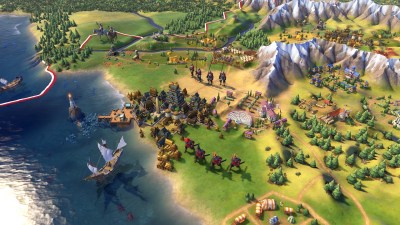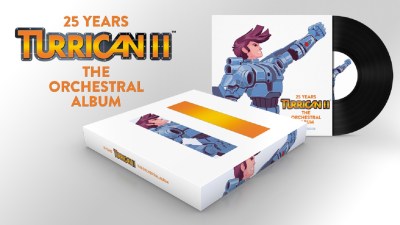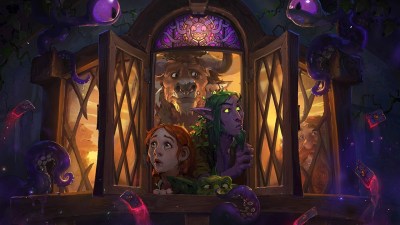I understand anger. I understand vitriol. I understand projection.
It’s a perfectly reasonable response to lash out at something that you feel threatens you, that disrupts the status quo. Hell, that’s the entire platform of conservatism. To preserve what you feel is the primacy of culture, to stalwartly defend what is available to deny that hurdles within the established culture prevent the creation of a better world, a less toxic environment for fellow men and women.
There is no use critiquing. The battlegrounds have been set. And Gamers - or at least the young people who conflate their head space with delusions of entitlement using the outlet that Internet culture provides - are really not the type of people I’d like to be associated with.
Again, I understand why self-identified Gamers feel this way. To be threatened by change is a very real and socially pervasive thing. To be challenged on ideas of masculinity, to be told that the ideas that you’ve grown up with and accepted as societal norms are wrong is strikingly difficult to accept - especially among a group who feels marginalized, who doesn’t feel that they live up to masculinity in a traditional sense.
Masculinity, in many scenarios, is used as a tool of comparison. How many women a man has slept with, their salary and interests, and their base of friends are all quantifying factors that prove a man’s manliness on a sliding scale, a so-called objective metric.
Gamers who feel saddled by these self-imposed burdens of masculinity but beholden to this identity despite rarely conforming to it are angry. And I understand that anger, that vitriol, and that projection.
They are held up to a standard that is impossible to achieve except for the most physically fit and mentally sound among us, and video games, as a pastime, do little to further these goals. While competition is gaming certainty does exist, it’s not the type of competition that fulfills the tenants of masculinity; it will not garner the type of objective praise and ego-stroking that is required for something like masculinity to exist.
In the 21st century, we live in a culture where masculinity is simultaneously celebrated and maligned. We subscribe to gender roles while only beginning to question them. Many women - rightfully so - see feminism as an outlet to vent their frustration, since it tends to fight against tangible injustices that affect all women. Just take a look at social satirist John Oliver’s segment on the gender wage gap to see what I’m talking about.
Men - particularly those that feel rejected by masculinity but simultaneously feel beholden to it - see something like that and reason that the so-called patriarchy is not about them. Like men and women in general, this is not a giant monolithic group that only subscribes to one point of view. As an entity, any social group doesn’t do anything while holding hands and acting in unison, and most men at the top aren’t thinking about how to advance the cause of men while belittling women - they are simply thinking of the bottom line.
In that regard, Gamers are men with complicated relationships to masculinity and not just people who enjoy games without any of the baggage that is associated with it. And while it’s an issue that I’ve dealt with personally and still grapple with to this very day, it doesn’t change how I enjoy games.
I don’t watch Anita Sarkeesian’s videos and feel my maleness threatened. She’s a social and political thinker; she challenges masculinity in storytelling, yes, but that’s not a challenge against anyone’s specific maleness.
I don’t play Zoe Quinn’s Depression Quest and feel that her personal details in any way impact my enjoyment of the game. I just don’t have the energy.
Identity - as a starting point - is a place where we feel connected to others due to shared life experience, and every identity feels threatened by the emergence of another. It’s just not easy to be a person. It never has been.
And while I understand the anger, the vitriol, and the projection - these are, after all, legitimate aspects of feeling marginalized, they are ultimately pervasive. They don’t promote change in a meaningful way, they don’t allow us to examine issues of masculinity and feel trapped by their expectations.
Just as I am not defined by my masculinity, I am not defined by my love of games and its conflation of Internet culture and entitlement. I am not a Gamer. Neither am I someone who subscribes to the traditional tenants of masculinity - at least not any more.
If not a Gamer, then what am I? I am a constantly evolving self. As the writer Earnest Hemingway, known for his own battles with masculinity, once said: “There is nothing noble in being superior to your fellow man; true nobility is being superior to your former self.”
To that end, it is much healthier, both for your own mental health and wellness, and for the world around you, to disengage from the Us vs Them or You vs I paradigm.
Instead, rather than feeling confused or conflicted by the expectations of masculinity, just decide whether you want its toxicity to define you.
In other words: Don’t be a Gamer. Be your own person.



